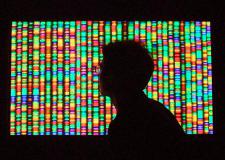‘All of Us’ research project diversifies the storehouse of genetic knowledge
By Rob Stein,
NPR
| 03. 07. 2024
A big federal research project aimed at reducing racial disparities in genetic research has unveiled the program's first major trove of results.
"This is a huge deal," says Dr. Joshua Denny, who runs the All of Us program at the National Institutes of Health. "The sheer quantify of genetic data in a really diverse population for the first time creates a powerful foundation for researchers to make discoveries that will be relevant to everyone."
The goal of the $3.1 billion program is to solve a long-standing problem in genetic research: Most of the people who donate their DNA to help find better genetic tests and precision drugs are whit
"Most research has not been representative of our country or the world," Denny says. "Most research has focused on people of European genetic ancestry or would be self-identified as white. And that means there's a real inequity in past research."
For example, researchers "don't understand how drugs work well in certain populations. We don't understand the causes of disease for many people," Denny says. "Our project is to really correct...
Related Articles
By Arthur Lazarus, MedPage Today | 01.23.2026
A growing body of contemporary research and reporting exposes how old ideas can find new life when repurposed within modern systems of medicine, technology, and public policy. Over the last decade, several trends have converged:
- The rise of polygenic scoring...
By Stephanie Pappas, LiveScience | 01.15.2026
Genetic variants believed to cause blindness in nearly everyone who carries them actually lead to vision loss less than 30% of the time, new research finds.
The study challenges the concept of Mendelian diseases, or diseases and disorders attributed to...
By David Cox, Wired | 01.05.2026
As he addressed an audience of virologists from China, Australia, and Singapore at October’s Pandemic Research Alliance Symposium, Wei Zhao introduced an eye-catching idea.
The gene-editing technology Crispr is best known for delivering groundbreaking new therapies for rare diseases, tweaking...
By Josie Ensor, The Times | 12.09.2025
A fertility start-up that promises to screen embryos to give would-be parents their “best baby” has come under fire for a “misuse of science”.
Nucleus Genomics describes its mission as “IVF for genetic optimisation”, offering advanced embryo testing that allows...




